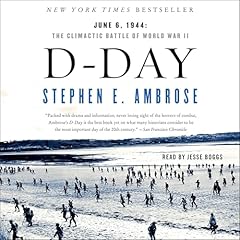
Battle of Shanghai
The Prequel to the Rape of Nanking
No se pudo agregar al carrito
Add to Cart failed.
Error al Agregar a Lista de Deseos.
Error al eliminar de la lista de deseos.
Error al añadir a tu biblioteca
Error al seguir el podcast
Error al dejar de seguir el podcast
 Exclusivo para miembros Prime: ¿Nuevo en Audible? Obtén 2 audiolibros gratis con tu prueba.
Exclusivo para miembros Prime: ¿Nuevo en Audible? Obtén 2 audiolibros gratis con tu prueba.Compra ahora por $10.25
-
Narrado por:
-
Ken Martin
-
De:
-
Luke Diep-Nguyen
Shanghai, known as the Pearl of the Orient, had always been an international center in China was near-total destruction during the Sino-Japanese War. Following the Marco Polo Bridge Incident in 1937, the Japanese headed for its goal, the capital of China, Nanking.
Shanghai was a key battleground before they were able to reach the capital of China, which brought on the “Stalingrad on the Yangtze”. As a leader of the Nationalist government, Chiang Kai-Shek would lead the Kuomintang (“KMT”) Army into preparing the city to repel the oncoming smaller, yet technologically superior and more experienced Kwantung Army under the combat-experienced graduate of Japan’s elite war college, General Iwane Matsui.
Initially, the Imperial Japanese Army had estimated the battle to be over within three days due to their military superiority. However, the Japanese would become engaged in three months, one week, and six days with KMT’s best-trained divisions in one of the largest and bloodiest battles of the Sino-Japanese War.
The Japanese would be forced into close combat urban warfare, which is similar to the rat warfare between the Germans and Russians during the Battle of Stalingrad five years later, allowing many historians to name the Battle of Shanghai as “the Stalingrad of the Yangtze”.
Special Japanese forces also used chemical weapons against the entrenched KMT soldiers. Only after the KMT military had run entirely out of ammunition, food, and water were they forced to surrender or flee from the city, which had been turned from a populated metropolitan town to a city of rubble and ashes.
©2020 Pacific Atrocities Education (P)2020 Pacific Atrocities EducationLos oyentes también disfrutaron:




















El oyente recibió este título gratis
Good one
Se ha producido un error. Vuelve a intentarlo dentro de unos minutos.


